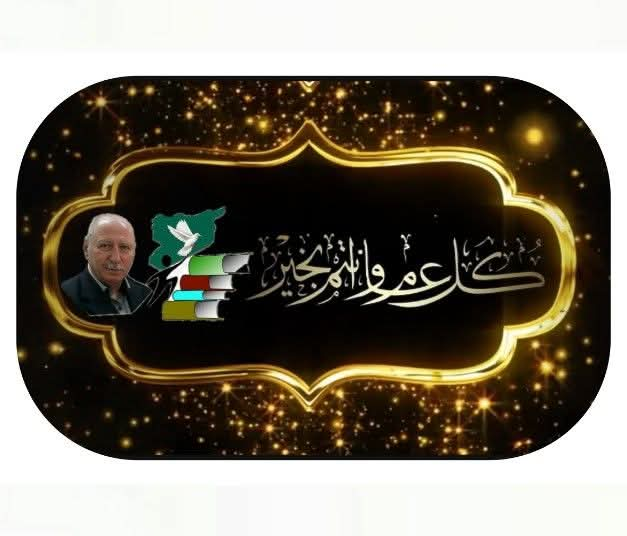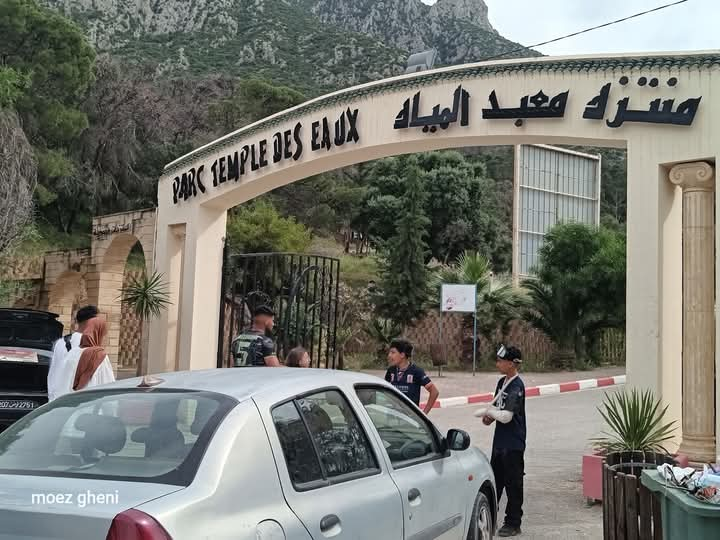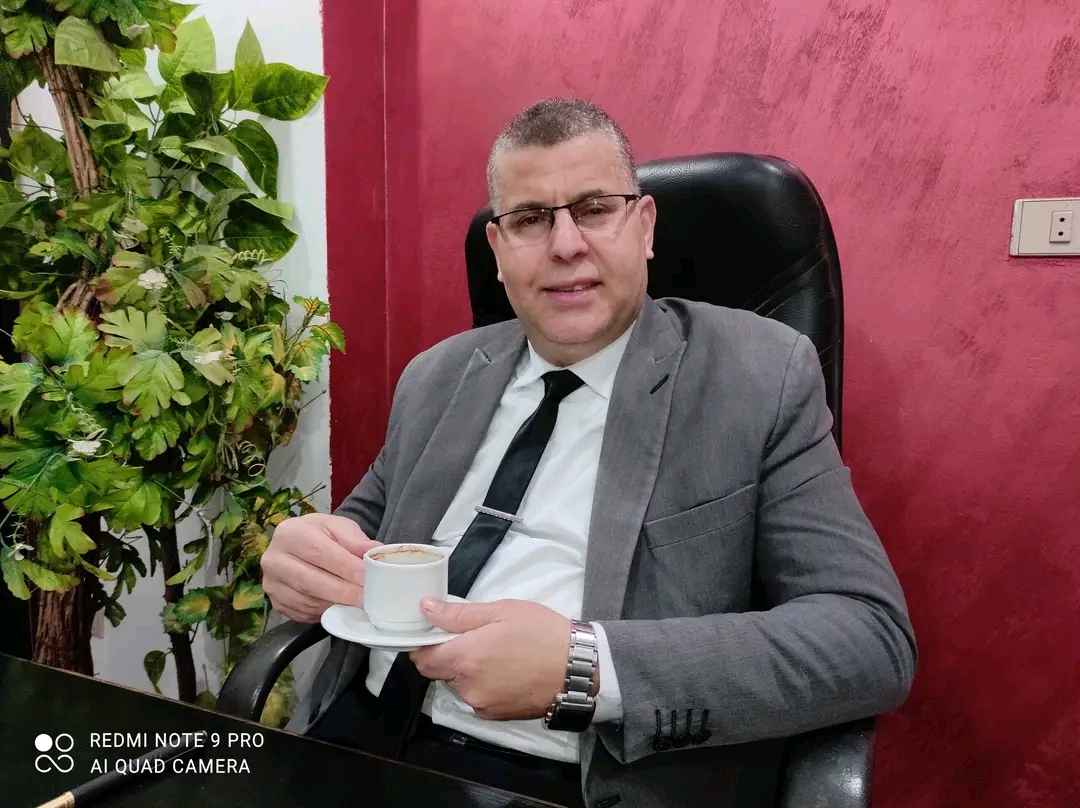العيد وكانت أيام لا زالت على البال
د. محمد توفيق ممدوح الرفاعي
لقد خلد كل من البيت إلى النوم عقب صلاة الفجر كما جرت العادة في أيام شهر رمضان المبارك ونستيقظ في ضحوة النهار، فالجميع يغط في نوم عميق إلا أنا وعلى غير العادة فقد جافاني النوم وبقيت مستيقظًا دون سبب يستدعي الأرق ولا أدري لماذا، إلا أنني بقيت مستلقيا في فراشي على أمل أن يعاودني النعاس ثانية كي أرح جسدي المتعب الذي فعلا بحاجة إلى الراحة بعد يومين من العمل الشاق أنهيت فيهما كل أعمالي وأيضا استكملت شراء كل مستلزمات العيد، حيث أنه من المحتمل أن يكون اليوم أو غدا آخر يوم من أيام شهر رمضان ونسمي هذا اليوم مجازًا وقفة العيد أي عيد الفطر المبارك، ومن المعتقد أن تسمية هذا اليوم بيوم الوقفة تيمنا بيوم وقفة جبل عرفة حيث يقف حجاج بيت الله الحرام على جبل عرفة في موسم الحج، أو بسبب وقوف ممن يهتمون بعلم الفلك ورصد الأهلة على المرتفعات العالية لرصد هلال شهر شوال ليتم ثبوت أول أيام العيد، تقلبت كثيرا في الفراش طالبا النوم إلا أن جميع محاولاتي باءت بالفشل ووجدت نفسي أحدق في سقف الغرفة وقد تسمرت عيناي به، ولتعود بي الذاكرة عقودا إلى الوراء لسنين خلت وما زلت أحن إليها وما أجملها، عدت ردحا من الزمن الجميل إلى طفولتي وأيام الشباب لأتنسم رائحة عطر وأنسام ذلك الزمن الذكية التي بت نفتقدها، فهذا أنا أسم جلبة وضوضاء مألوفة في كل مكان، أصوات فتيات وشباب وأمهات وآباء أخوة وأخوات يتنادين من مكان وهم في حركة ونشاط عهدناها في أواخر رمضان، ففي مثل اليوم من تلك الأيام الجميلة كانت غالبية الناس تصل الليل بالنهار في انتظار ثبوت رؤية هلال شوال من غروب شمس يوم التاسع والعشرين من شهر رمضان إلا الساعات الأولى من شروق الشمس، فبعد أن تذهب الرجال والفتية إلى مسجد الحي لأداء صلاة الفجر تبدأ النسوة بإعداد ما يلزم لاستقبال العيد وصناعة الحلوى اللذيذة التي لا يزال طعمها راسخًا في ذاكرتي كأقراص المعمل المحشو بالتمر والفستق الحلبي أو اللوز والجوز والسنبوسك وغيرها، يصبح المنزل حينئذ ورشة عمل كخلية النحل فهناك امرأة تعجن عجين الحلوى وأخرى تعد معجون التمر والفستق وجوز الهند وثالثة تصف أقراص الحلوى في صحائف الفرن حتى البنات الصغيرات فكلنهن منهمكات بتنفيذ ما عهد إليهن من أعمال و يجب أن إنجازها، وعقب الانتهاء من صلاة الفجر تكون النسوة قد انتهين من إعداد صحائف الحلوى حيث يأخذها الرجال والشباب لخبزها في فرن الحي فلا ترى في أزقة الحي إلا شبانا ورجالا رائحون وغادون من وإلى الفرن وقد تجمهر بعضهم أو جلسوا بجانب حائط الفرن على شكل مجموعات يتسامرون لحين انتهاء خبز حلوياتهم وكان البعض منهم يتطوع لمساعدة عمال الفرن في عملهم، أما في المنزل فبعد أن يخرج الرجال إلى الفرن لخبز الحلوى يتحول المنزل إلى ورشة عمال نظافة فتتقاسم النسوة والفتيات العمل ويبدأ ما يسمى بالعامية التعزيل فلا يبقى ركن في المنزل إلاّ يشطف بالماء والمنظفات من أرضيات وأبواب وشبابيك ولا تبقى قطعة أساس إلاّ قد تم تنظيفها بالماء والصابون فلا تسمع سوى أصوت خرير الماء والأوعية التي يتم نقلها من مكان إلى مكان وأصوات الفتيات يتصايحن أو يدندن بأغنيات العيد فلا يوجد منزل إلاّ يصدح فيه صوت المذياع بأغاني العيد الجميلة كأغنية الليلة عيد للحجة أم كلثوم أو أَغَان سفيرتنا إلى النجوم فيروز أو أو إلخ، وبعد يعود الرجال والشباب من الفرن محملين بأجمل وألذ الحلوى يسلمونها لسيدة البيت بحرص شديد لترتبهم بالصحاف وأواني الضيافة محذرة الجميع من تناول أي قطعة من هذه الحلوى مرددة جملتها المأثورة (هدول للعيد عيب نأكل قبل الضيوف) بعد ذلك يتحول الرجال والشباب إلى مهمة أخرى حيث يخرجون إلى زقاق الحي وهم يحملون المكانس وخراطيم الماء لتبدأ عملية النظافة حيث يشترك جميع سكان الحي بتنظيف وكنس وشطف الحي كُلَّه كل يبدأ من باب داره حتى يصبح الحي بأبهى صورة فالكل يعمل بهمة ونشاط مستمتعين بقدوم العيد على أصوات أَغَان العيد التي تتسلل من نوافذ وشرفات البيوت، وبعد الانتهاء يعود كل منهم إلى داره مستمتعًا بما قام به وقد أعطى شهر رمضان حقه ليكون العيد أجمل جائزة يحصلون عليها، فإن تم الإعلان عن رؤية هلال العيد توجه الرجال والشباب إلى المسجد لأداء صلاة العيد في مسجد الحي أو المسجد الجامع في المدينة، في هذه الأثناء يكلف الأطفال بمهام خاصة فعليهم إيصال بعض صحائف الحلوى للجيران وهي العادة المتبعة في تبادل أطباق حلوى العيد بين الجوار وكانت حصة الفقراء ترسل لهم بصحائف مغلفة حتى لا يعرف ما بداخلها وغالبا تكون مرفقة بمبلغ من المال وهي زكاة الفطر أو مساعدة إنسانية كصدقة لوجه الله وأيضا قد ترفق بأكياس تحوي بعض الملابس والحاجيات الضرورية حيث يطرقون الأبواب ويضعون ما يحملون أمامها ويغادرون مسرعين كي لا يرونهم أصحاب هذه الدور، وبعد انتهاء صلاة العيد يخرج المصلون من المصلى إلى صحن المسجد الجامع أو ساحة الحي يتبادلون التهنئة بالعيد والدعاء إلى الله أن يتقبل من الجميع طاعاتهم ثم يقف كل منهم أمام باب منزله منتظرا المسحراتي وعامل النظافة ليؤودنهما ما تجود به أنفسهم من المال والحلوى ويباركون لهم بالعيد وبعدها تبدأ مراسم العيد الروتينية فيقبل الأولاد يهنؤون آباءهم بالعيد ويقبلون أياديهم ثم يتوجه الجميع إلى المقبرة لقراءة الفاتحة على أرواح أمواتهم ومن ثم يعودون إلى بيوتهم لتناول طعام الإفطار، تبدأ بعدها رحلة تبادل الزيارات بين الأقارب والأصحاب والجيران، وإن لم يتم ثبوت العيد لعدم رؤية هلال العيد وبعد كل هذا العناء والعمل المتفاني ابتهاجًا بقدوم العيد يكون الجميع قد أنهكه التعب يدخلون بيوتهم ليخلدوا إلى الراحة إلى أن يحين موعد إفطار آخر يوم من أيام رمضان.
الله الله سقى الله تلك الأيام، إنها أيام لا زالت تخطر على البال وأحن إليها وكمْ أتمنى أن تعود لأني أحب أن أرى بهجة تلك الأيام على وجوه أبنائي وأحفادي.
د. محمد توفيق ممدوح الرفاعي
Eid and the days that are still fresh in my mind
Dr. Muhammad Tawfiq Mamdouh Al-Rifai
Everyone in the house went to sleep after the dawn prayer, as is customary during the days of the blessed month of Ramadan, and we woke up in the middle of the day. Everyone was fast asleep except me. Unusually, sleep eluded me, and I remained awake for no reason that warranted insomnia. I don’t know why, but I remained lying in my bed hoping that sleep would return to me again so that I could rest my tired body, which truly needed rest after two days of hard work during which I finished all my work and also completed purchasing all the Eid necessities. Today or tomorrow will likely be the last day of the month of Ramadan, and we metaphorically call this day the Day of the Standing of the Eid, meaning the blessed Eid al-Fitr. It is believed that this day is called the Day of the Standing of the Mount of Arafat, where pilgrims to the House of God stand on Mount Arafat during the Hajj season, or because those interested in astronomy and observing the crescent moon stand at high altitudes to observe the crescent of the month of Shawwal to confirm the first day of Eid. I tossed and turned in bed a lot, trying to sleep, but all my attempts failed, and I found myself staring On the ceiling of the room, my eyes fixed on it, and my memory takes me back decades to years gone by, and I still yearn for them, and how beautiful they are. I returned to a long time from the beautiful time to my childhood and the days of youth to smell the scent of perfume and the fragrant breezes of that time that we have come to miss. This is me, the name of the familiar noise and commotion everywhere, the voices of girls and young men, mothers and fathers, brothers and sisters calling from a place, in a movement and activity that we have known in the last hours of Ramadan. On a day like today, one of those beautiful days, most people would spend the night and day waiting for the sighting of the Shawwal crescent moon from sunset on the twenty-ninth of Ramadan, except for the first hours of sunrise. After the men and boys go to the neighborhood mosque to perform the dawn prayer, the women begin preparing what is necessary to welcome the Eid and making the delicious sweets whose taste is still firmly rooted in my memory, such as the “Ma’mal” discs stuffed with dates and pistachios, or almonds, walnuts, samosas, and others. The house then becomes a workshop like a beehive, as there is a woman kneading the dough for the sweets, another preparing the paste of dates, pistachios, and coconut, and a third arranging the discs of sweets in Even the little girls are all busy carrying out the tasks assigned to them and must be completed. After the dawn prayer is over, the women have finished preparing the sweet sheets, which the men and young men take to be baked in the neighborhood oven. You do not see in the neighborhood alleys except young men and women going to and from the oven. Some of them have gathered or sat next to the oven wall in groups, chatting until their sweets are finished baking. Some of them volunteer to help the oven workers in their work. As for the house, after the men go to the oven to bake the sweets, the house turns into a workshop for cleaners. The women and girls share the work and what is called in the vernacular “cleaning” begins. There is no corner of the house that is not washed with water and detergents, from the floors, doors and windows. There is no basic piece that is not cleaned with water and soap. You do not hear anything but the sounds of gurgling water and the vessels that are being moved from place to place and the voices of the girls shouting or humming Eid songs. There is no house in which the radio does not resound with beautiful Eid songs, such as the song “Al-Laylah Eid” by Hajja Umm Kulthum or the songs of Our ambassador to the stars, Fairuz, etc., and after that, the men and young men return from the bakery carrying the most beautiful and delicious sweets, and they hand them to the lady of the house with great care, so that she can arrange them on plates and hospitality utensils, warning everyone not to eat any piece of this sweet, repeating her famous phrase (These are for Eid, it is not right to eat before the guests). After that, the men and young men move on to another task, as they go out to the neighborhood alley, carrying brooms and water hoses, to begin the cleaning process, as all the residents of the neighborhood participate in cleaning, sweeping, and rinsing the entire neighborhood, each starting from the door of his house until the neighborhood becomes in its most beautiful image, as everyone works with enthusiasm and activity, enjoying the arrival of Eid to the sounds of Eid songs that seep in from the windows and balconies of the houses. After finishing, each of them returns to his home enjoying what he has done, having given the month of Ramadan its due, so that Eid is the most beautiful prize they can receive. If the sighting of the Eid crescent is announced, the men and young men head to the mosque to perform the Eid prayer in the neighborhood mosque or the grand mosque in the city. Meanwhile, the children are assigned special tasks, as they have to deliver some plates of sweets to the neighbors, which is the custom followed in Eid sweets were exchanged between neighbors. The poor’s share was sent to them in wrapped sheets so that no one would know what was inside. It was often accompanied by a sum of money, which is Zakat al-Fitr or humanitarian aid as charity for the sake of God. It might also be accompanied by bags containing some clothes and necessary items. They knock on doors and place what they are carrying in front of them and leave quickly so that the owners of these homes do not see them. After the Eid prayer ends, the worshipers go out from the prayer area to the courtyard of the mosque or the neighborhood square. They exchange Eid greetings and pray to God to accept everyone’s obedience. Then each of them stands in front of his house’s door waiting for the drummer and the cleaner to give them whatever money and sweets they can afford and congratulate them on the Eid. After that, the routine Eid ceremonies begin. The children come to congratulate their fathers on the Eid and kiss their hands. Then everyone heads to the cemetery to recite Al-Fatiha for the souls of their dead. Then they return to their homes to eat breakfast. After that, the journey of exchanging visits between relatives, friends and neighbors begins. If the Eid is not confirmed due to the lack of sighting of the Eid crescent, after all this trouble and work Dedicated to celebrating the arrival of Eid, everyone is exhausted and goes home to rest until the time comes to break their fast on the last day of Ramadan.
May God bless those days. They are days that still come to mind and I long for them. I wish they would return, because I love seeing the joy of those days on the faces of my children and grandchildren.
Dr. Muhammad Tawfiq Mamdouh Al-Rifai
العيد وكانت أيام لا زالت على البال




